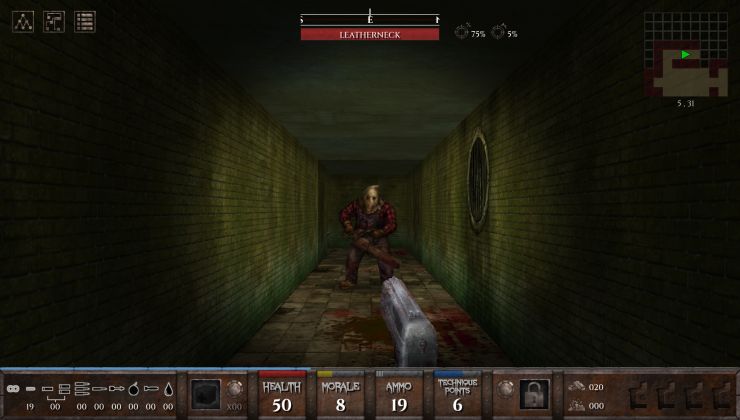According to YouTuber Dave2D who managed to get their hands on the Lenovo Legion Go S, the SteamOS version destroys Windows in performance and battery life. That's a nice win for Valve's Linux platform, and only continues to show how drastically Linux has improved thanks to all the work on GPU drivers and the Proton compatibility layer.
With the release of SteamOS 3.7, this has only just begun. We're about to see a lot more of this.
Have a look at the performance difference and this is just on the Z2 Go chip as well:
|
Title |
Legion Go S - SteamOS |
Legion Go S - Windows |
|
Cyberpunk |
59 FPS |
46 FPS |
|
Helldivers 2 |
70 FPS |
65 FPS |
|
Doom Eternal |
75 FPS |
66 FPS |
|
Spiderman 2 |
63 FPS |
64 FPS |
|
Witcher 3 |
76 FPS |
66 FPS |
When it comes to battery life, SteamOS was yet again a very clear winner in this with even demanding titles like Cyberpunk 2077 having 1 hour 31 minutes on Windows and 1 hour 54 minutes on SteamOS. In less demanding titles like Dead Cells the difference is absolutely insane jumping from 2 hours 47 minutes on Windows to 6 hours 12 minutes on SteamOS. Again for Hades at only 1 hour 58 minutes on Windows and 4 hours 17 minutes on SteamOS.
Dave2D also talks again about just how good the sleep system is on SteamOS, with you being able to just tap the power button on the Legion Go S and tap it again to pick up right where you left off which just doesn't really work on Windows. Seems like it's just win after win for SteamOS compared to Windows for handheld gaming (apart from games with anti-cheat).
See their full video on it below, Dave2D does some really nice work:

Direct Link
I did ask Lenovo if we would be able to get a review unit but the emails didn't really go anywhere, so it seems most likely we will not be getting one.
What they could have done was create a version of the xbox system for use on various other devices. This would actually serve their current direction for gaming more than having Win11 on these handhelds. But I guess these sorts of decisions take ages to through the decision process of these big bulky institutions.
FLAWLESS VICTORY
I hope he's wrong with expecting that Valve does not have huge reasons to make more hardware when the experts are doing it already...Indeed. The innovation did come from Valve. The others are only making revisions. The Steam Controller was a great new kind of controller. Here they did their next revision themselves, and it became the Steam Deck. The Valve Index VR headset is still one of the best out there with it's base station tracking (Quest 3 is great too I heard, especially with the pancake lenses) and its awesome sound system, i.e. the microphone and the hovering speakers.
Also the Steam machines were their idea of a console like living room pc... which again lead to the Steam Deck. There had been other gaming handhelds before (e.g. GPDWin), yet the Steam Deck kicked off this market.
I hope they keep doing their own devices, Apple has shown that having hardware and software bundled together from one vendor is working well for customers. And here we see Valve even opening it up for other vendors (unlike Apple) and showing that the PC is still an open platform. Not what Microsoft tries to do with locking you in to their system.
Looks like gaming is what brings Linux to the masses :woot:
Last edited by johnny-linux on 6 Jun 2025 at 6:31 pm UTC
I think that's what Valve is trying to recreate, with SteamOS.
Lets see what the shills can "move the goalpost" to to justify their measurably inferior preference.
It's really cool seeing these kinds of devices come out, and the stats are just icing on cake.
How much useless stuff must run in background to cut battery life by a 2.5x factor? By any means, it's a colossal difference...Hi I'm Clippy. It looks like you are trying to play a video game, I can help with that.
Let's get started backing up your files to One Drive.
I'm certainly excited for more devices with SteamOS coming out:wub:
A bit of nostalgia for us OGs: https://web.archive.org/web/20130121014355/https://blogs.valvesoftware.com/linux/faster-zombies/And the follow-up! https://richg42.blogspot.com/2017/01/the-faster-zombies-blog-post.html?m=1
The Legion Go S with SteamOS is 6h 12m vs the 2h 47m under Windows.
I'm completely with the complaint that Windows can't suspend / resume reliably like other operating systems. Suspending a running game is more complex (but SteamOS handles it) but if you can't reliably suspend Windows with a few applications running (browser, editor, etc) there isn't much hope for games.
Valve has figured out the mobile gaming experience and Microsoft is way behind. Unless they start shipping a Xbox style "game mode" for Windows 11 to mimic SteamOS, they will be stuck with the same user experience issues of having a Windows desktop experience on a mobile device. Not what I'm looking for and I'm an IT person.
Makes me wonder if the battery life on regular laptops could also be better with Linux installed?That's the case here. I pulled out my laptop in front of my friends last night to do something, they were all mindblown the battery was still at %60 having told them I hadn't touched in in a day and a half. They were most surprised it doesn't turn on by itself when I tuck it in the bag, such is the case for the infamous Windows sleep in laptops.
Dave2D also talks again about just how good the sleep system is on SteamOS, with you being able to just tap the power button on the Legion Go S and tap it again to pick up right where you left off which just doesn't really work on Windows.
I'm completely with the complaint that Windows can't suspend / resume reliably like other operating systems. Suspending a running game is more complex (but SteamOS handles it) but if you can't reliably suspend Windows with a few applications running (browser, editor, etc) there isn't much hope for games.It's not the operating system, it's the suspend mode.
SteamOS uses suspend-to-RAM / S3 / deep sleep & Windows prefers (or even enforces) suspend-to-idle / S2idle or standby (https://docs.kernel.org/admin-guide/pm/sleep-states.html). You can see this in the video, too: SteamOS takes a lot longer than Windows to wake up.
They were most surprised it doesn't turn on by itself when I tuck it in the bag, such is the case for the infamous Windows sleep in laptops.Linux has exactly the same issues as Windows & I think it's usually caused by the firmware (e.g. it got better on Lenovo ThinkPad or HP EliteBook devices after a few firmware updates). Unfortunately S3 often isn't even implemented anymore.
Linux has exactly the same issues as Windows & I think it's usually caused by the firmware (e.g. it got better on Lenovo ThinkPad or HP EliteBook devices after a few firmware updates). Unfortunately S3 often isn't even implemented anymore.I don't know any of the details, I just know it doesn't happen for my laptop (Dell Inspiron i5 gen 8).
In fact, and this is another thing that came up when I was flexing on my friends; I don't believe I heard the fan noise of my laptop, not even once since I installed Linux on the thing a year ago. When it was on Windows, it would randomly spin up the fans like crazy, usually when I'm away form the computer too, like what's up with this thing ?
I dual-boot on all my systems (I paid for the license, so I'm not going to delete it). I spend very little time in Windows, except for games or applications that won't run in Linux (which is getting to be fewer & fewer all the time). I noticed a couple years back that the same game would run better in Linux. I also like that I can give each game their own prefix, so there is no chance of one installation corrupting the other.
Windows has always sucked for performance and bloat.
I can't comment on battery life, however, as I rarely use my laptops that way.











 How to setup OpenMW for modern Morrowind on Linux / SteamOS and Steam Deck
How to setup OpenMW for modern Morrowind on Linux / SteamOS and Steam Deck How to install Hollow Knight: Silksong mods on Linux, SteamOS and Steam Deck
How to install Hollow Knight: Silksong mods on Linux, SteamOS and Steam Deck